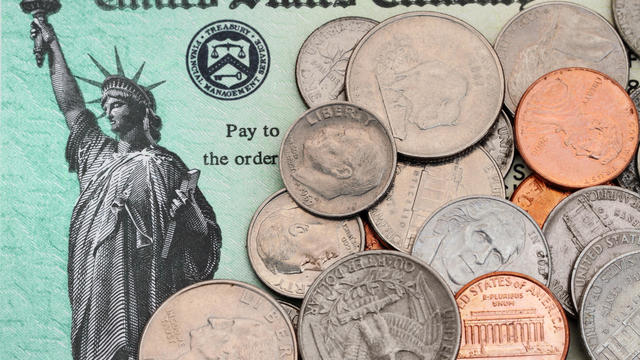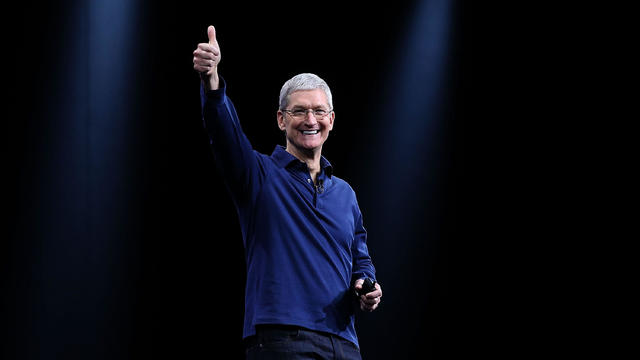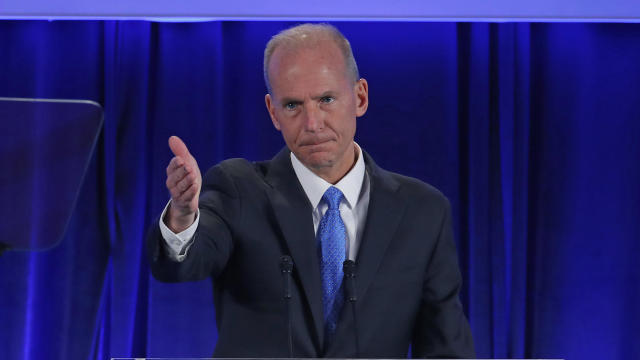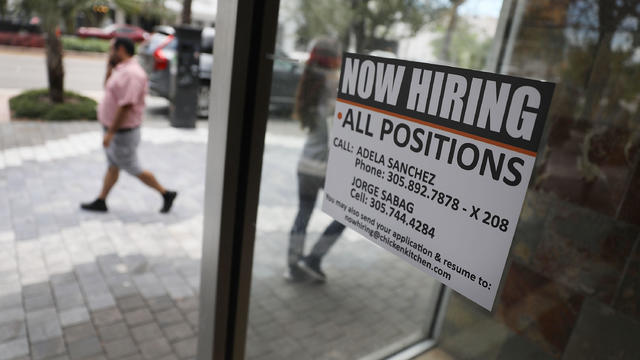Fed on track to slow aid for economy later this year, Jerome Powell says
Washington — The Federal Reserve will start dialing back its ultra-low-rate policies this year as long as hiring continues to improve, Chair Jerome Powell said Friday, signaling the beginning of the end of the Fed's extraordinary response to the pandemic recession.
The Fed's move could lead, over time, to somewhat higher borrowing costs for mortgages, credit cards and business loans. The Fed has been buying $120 billion a month in mortgage and Treasury bonds to try to hold down longer-term loan rates to spur borrowing and spending. Powell's comments indicate the Fed will likely announce a reduction — or "tapering" — of those purchases sometime in the final three months of this year.
"Despite the resurgence in case loads, Powell is relatively upbeat about both the economic and inflation outlooks, and is eyeing the start of tapering this year, though perhaps later this year," Sal Guatieri, senior economist with BMO Economics, told investors in a report.
No immediate rate hikes
Powell stressed that the beginning of tapering does not signal any plan to start raising the Fed's benchmark short-term rate, which it has kept near zero since the pandemic tore through the economy in March 2020. Rate hikes won't likely start until the Fed had finished tapering its bond purchases.
But Powell said inflation has risen enough to meet its test of "substantial further progress" toward the Fed's goal of 2% annual inflation over time, which was necessary to begin tapering. There has also been "clear progress," he said, toward the Fed's goal of maximum employment.
"We have said that we would continue our asset purchases at the current pace until we see substantial further progress toward our maximum employment and price stability goals, measured since last December, when we first articulated this guidance," Powell said in his speech, which was delivered online because of ongoing COVID-19 concerns. "My view is that the 'substantial further progress' test has been met for inflation. There has also been clear progress toward maximum employment.
At the same time, the Fed chair said the central bank is monitoring the economic impact of the highly contagious Delta variant, which has caused a sharp spike in COVID-19 cases in the United States, especially in the South and West.
"While the Delta variant presents a near-term risk, the prospects are good for continued progress toward maximum employment," Powell said. He spoke via webcast to the Jackson Hole Economic Symposium, which is being held virtually for a second straight year because of COVID-19.
A sharp jump in inflation has put the Fed's ultra-low-interest rate policies under growing scrutiny, both in Congress and among ordinary households that are being squeezed by surging prices. Inflation, according to the Fed's preferred gauge, rose 3.6% in July compared with a year earlier, the biggest increase in three decades. The month-to-month increase slowed from 0.5% to 0.3%.
Don't panic over inflation
In his speech, Powell underscored his longstanding view that while inflation has surged, causing difficulties for millions of Americans, the price acceleration should ease once the economy further normalizes from the pandemic and supply shortages abate. History, he said, suggests that the Fed should not overreact to temporary price spikes by undoing its support for the economy too aggressively. Doing so could weaken job growth.
If the Fed were to reduce its stimulus "in response to factors that turn out to be temporary," the Fed chair said, "the ill-timed policy move unnecessarily slows hiring and other economic activity and pushes inflation lower than desired."
Powell also noted that while average wages have risen, they haven't increased enough to raise fears of a "wage-price spiral," as occurred during the ultra-high-inflation 1970s.
"Today," he said, "we see little evidence of wage increases that might threaten excessive inflation."
Most Fed officials said at their last meeting in late July that inflation had met their goal of making "substantial further progress" toward topping 2% for some time. If the economy continued to improve, most officials said it would be appropriate to begin reducing the Fed's bond purchases later this year, according to minutes from the meeting released last week.
Complicating the situation, the resurgence of the pandemic, led by the Delta variant, has confounded the Fed's expectations that the economy and job market would be on a clear path to improvement by this fall. The Delta variant could slow spending in such areas as air travel, restaurant meals and entertainment.
When tapering might begin
Fed officials also hoped that many factors discouraging Americans from seeking jobs, such as fear of catching the virus, would begin to dissipate this fall and boost job gains. Instead, the Delta variant may renew those fears and potentially postpone the point at which the Fed can gain a clear read on the job market.
Paul Ashworth of Capital Economics thinks the Fes is unlikely to start removing monetary support until November.
"Over the past 24 hours, various Fed hawks have been pushing in interviews for the taper to be announced at the upcoming September meeting," he said in a research note. "But even if we see another big gain in payroll employment in August, we suspect that the Delta variant threat means the majority of officials will want to wait until the November meeting to give the green light."









